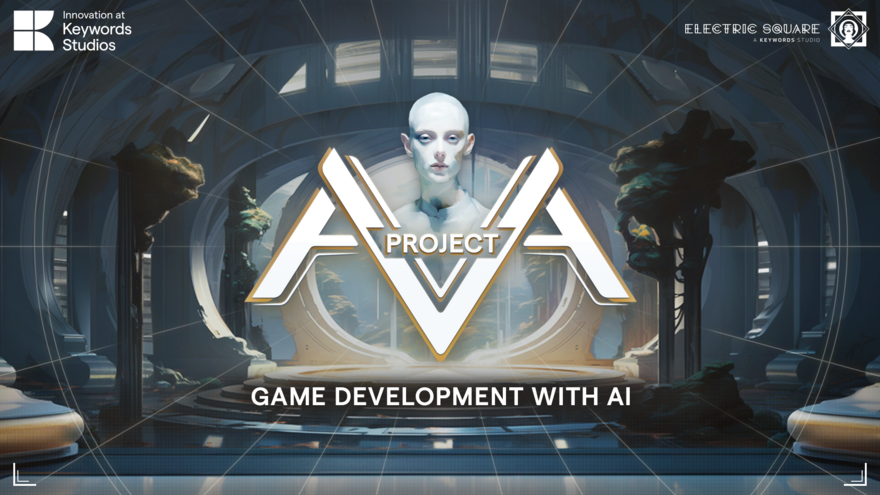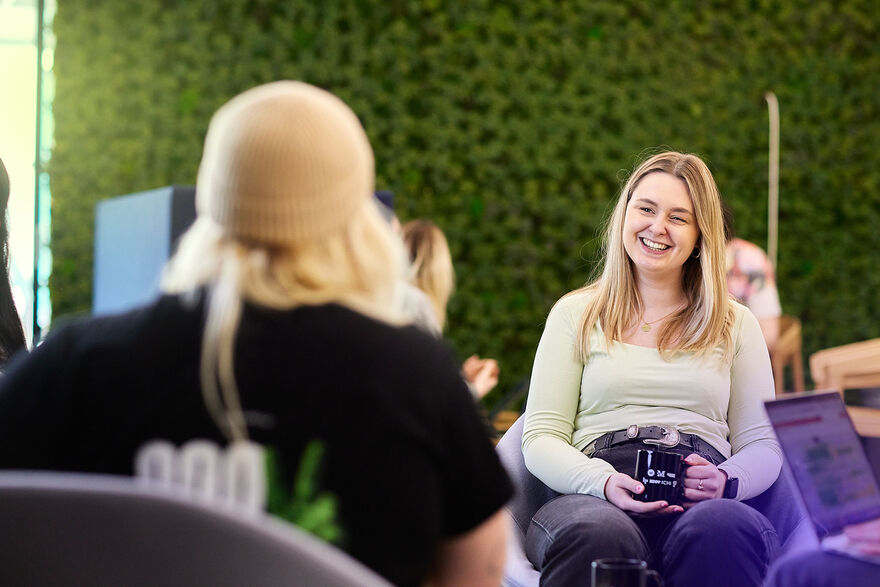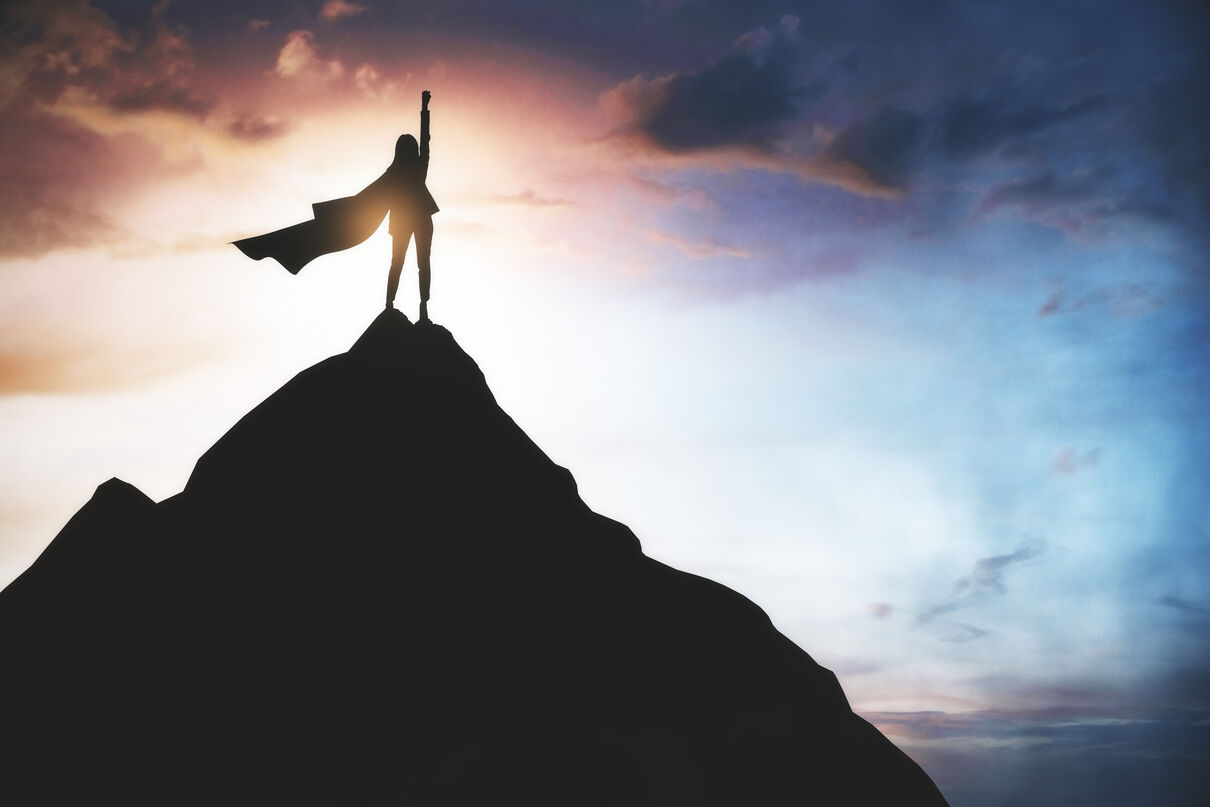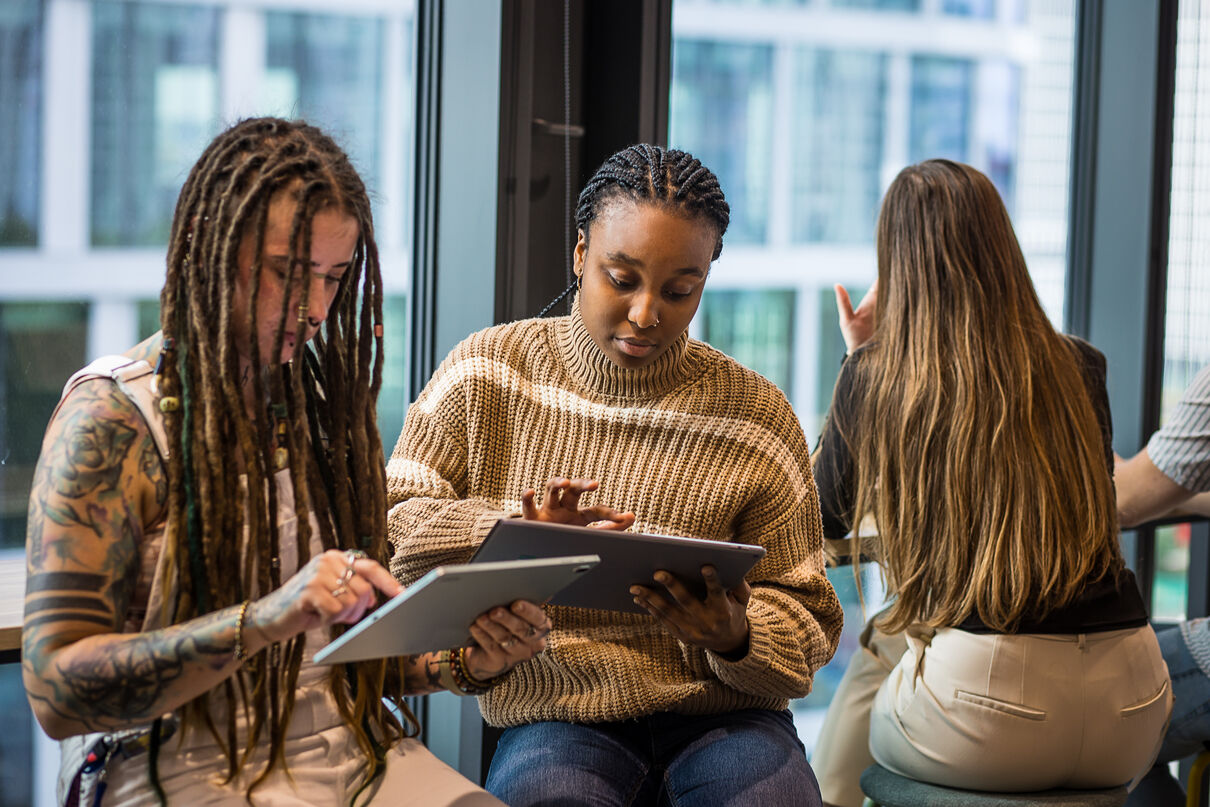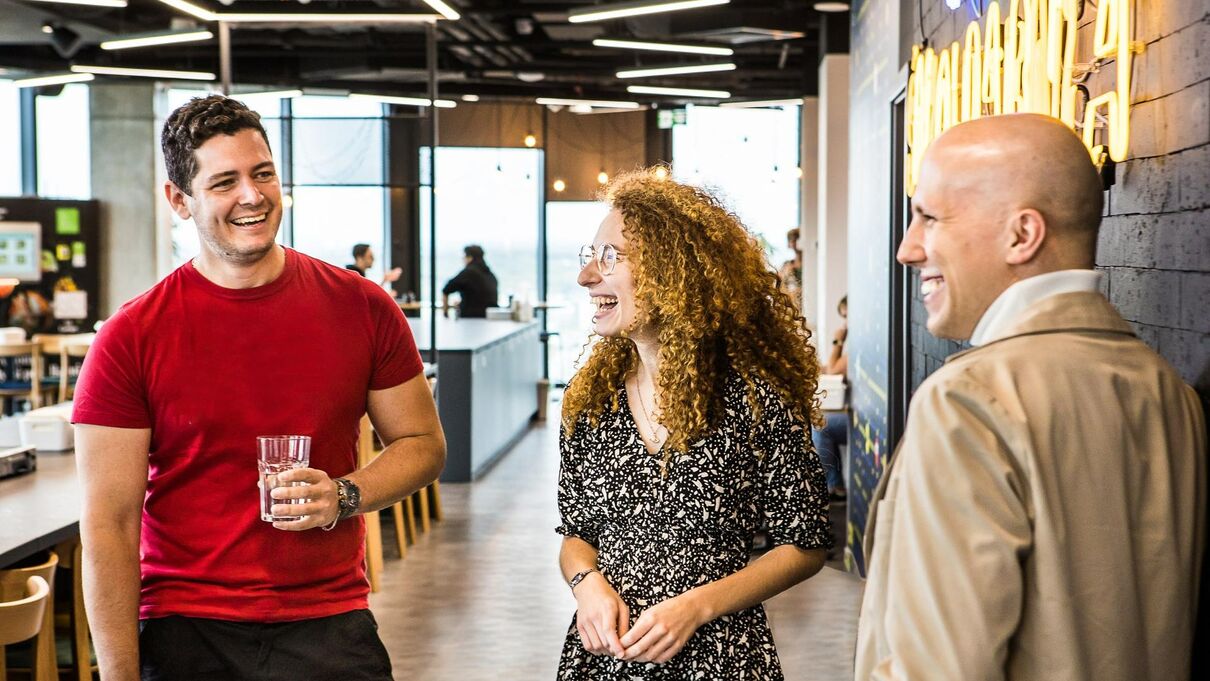Neurodiversity in the Video Games Industry
At Keywords Studios, we are building our understanding of neurodiversity as well as support for neurodivergent colleagues. With help from our teams around the world, we are developing related trainings, audits, and networks. We know that there is a higher proportion of neurodivergent people working in games than other sectors, and we want to ensure that our colleagues have the support they need to fully apply their skills.
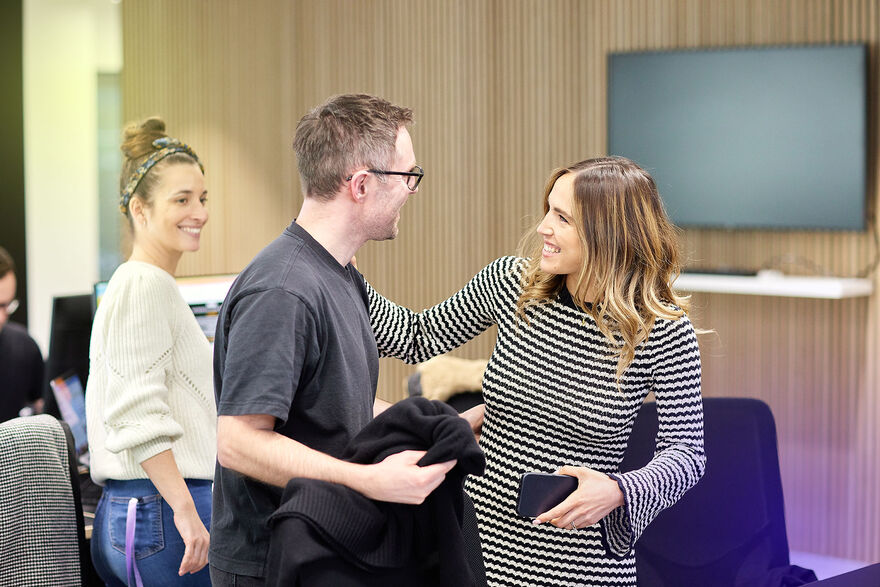
Earlier this year at Develop:Brighton, several members of our team took part in discussions on neurodiversity and mental health, with a specific focus on how to achieve balance in life and in the workplace.
As part of the event, Meg Rouncefield and Peter Yates, Designers at d3t, a Keywords Studio, held a fascinating talk on their unique challenges as neurodivergent designers in the video games industry, as well as their respective journeys in managing this.
We asked Meg and Peter for their reflections post-Develop and how their talk can help fellow neurodivergent people in speaking out:
Meg Rouncefield – Senior Game Designer at d3t
Comfort zones are a weird thing. We don’t necessarily know what ours are, until we find ourselves outside them. Earlier this year, when I agreed to talk at Develop about neurodiversity in the games industry, creative flow and the support people need, I quickly found myself far outside my comfort zone.
And, you know, it all turned out fine.
I wanted to touch upon a few things during my talk: coping mechanisms, autonomy, the working environment, and particularly demasking, because to me an important part of creative work is authenticity. It’s hard to show people your creativity without showing them exactly who you are, because those things are intimately linked.
Figuring out how you work best with a neurodiverse condition, and figuring out how to manage people with the same, is difficult. Sure, you can get a diagnosis which opens up pathways, but it isn’t a magic button. It doesn’t fix anything. It can create more work, work that takes years to bed in and settle down.
For this roundtable talk, Pete and I wanted to show that a neurodiverse condition isn’t necessarily negative. It’s the start of a journey, one which might be—probably will be—difficult. But with a good support structure in place, you can achieve great things.
I said earlier that it all turned out fine, and it did. But without Pete and the wider D3T/Coconut Lizard team alongside me, I would have found that comfort zone very hard to leave. I stepped out, though, and I’m glad I had a great team to rely on. We were all able to be ourselves; authentic, creative, and neurodiverse in the most positive way.
Peter Yates – Designer at d3t
I think the greatest lesson I learned from being at Develop is how important it was for us to have spoken.
Honestly, I was worried that our talk might not have interested many people, or that there would be more pertinent things to go and see. After all, there were other talks going on at the same time and Travis Martin, a fellow neurodivergent at Keywords Studios, had already done a fascinating and inspiring talk earlier in the week around similar subjects.
Indeed, Travis’ talk was amazing. They got emotional at one point, while they marvelled at how good it feels to have your true self and your differences recognised and supported by your manager and your job. I understood the emotions they were feeling as I have them too, and they are just as affecting to me. It was beautiful to realise that, since my diagnosis, I have the same recognition and freedom now.
Their talk also frustrated me in some respects, nothing at all to do with Travis, but in terms of the way I have looked at myself in the past. Feelings of inadequacy and shame that come from feeling like you’ve been stupid your whole life! It made me really emotional.
I was also worried that our talk might be chaotic or that it might be seen as being not as useful as some of the others. But it appears that this wasn’t the case. Meg and I have both received lots of messages since the talk. We also talked to lots of people at the venue who were keen to ask questions and share their experiences. There were people bursting into tears in the audience! We had to go around and check up on them afterwards. There was a lot of love in the room.
Hopefully, our talk gave people a little taster of what it is like to be recognised. A little piece of our heaven. Hopefully some people were able to take an extra step in their journey because of what we said. My colleague and fellow speaker Meg is a very brave person. I got to see a little of what she is battling every day. I have no doubt that her bravery helped people in that room as well as afterwards. It certainly humbled and inspired me.
So, the subject is almost unimportant. The important thing is to speak and to be seen. Other people see us and hear our message and might just be inspired to take that next step in accepting themselves, or someone else, as they are. That is priceless.
